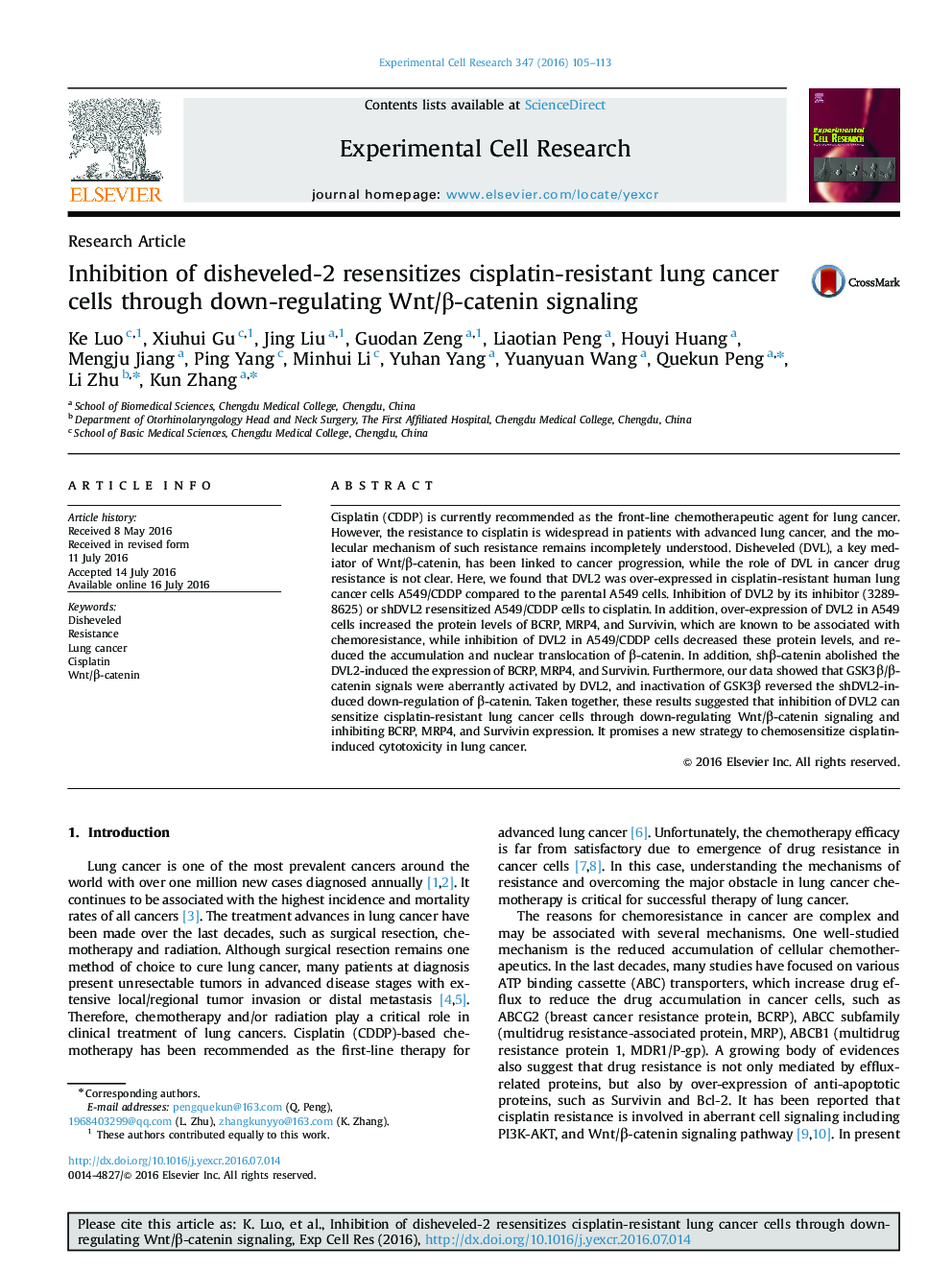| Article ID | Journal | Published Year | Pages | File Type |
|---|---|---|---|---|
| 2129889 | Experimental Cell Research | 2016 | 9 Pages |
Abstract
Cisplatin (CDDP) is currently recommended as the front-line chemotherapeutic agent for lung cancer. However, the resistance to cisplatin is widespread in patients with advanced lung cancer, and the molecular mechanism of such resistance remains incompletely understood. Disheveled (DVL), a key mediator of Wnt/β-catenin, has been linked to cancer progression, while the role of DVL in cancer drug resistance is not clear. Here, we found that DVL2 was over-expressed in cisplatin-resistant human lung cancer cells A549/CDDP compared to the parental A549 cells. Inhibition of DVL2 by its inhibitor (3289-8625) or shDVL2 resensitized A549/CDDP cells to cisplatin. In addition, over-expression of DVL2 in A549 cells increased the protein levels of BCRP, MRP4, and Survivin, which are known to be associated with chemoresistance, while inhibition of DVL2 in A549/CDDP cells decreased these protein levels, and reduced the accumulation and nuclear translocation of β-catenin. In addition, shβ-catenin abolished the DVL2-induced the expression of BCRP, MRP4, and Survivin. Furthermore, our data showed that GSK3β/β-catenin signals were aberrantly activated by DVL2, and inactivation of GSK3β reversed the shDVL2-induced down-regulation of β-catenin. Taken together, these results suggested that inhibition of DVL2 can sensitize cisplatin-resistant lung cancer cells through down-regulating Wnt/β-catenin signaling and inhibiting BCRP, MRP4, and Survivin expression. It promises a new strategy to chemosensitize cisplatin-induced cytotoxicity in lung cancer.
Related Topics
Life Sciences
Biochemistry, Genetics and Molecular Biology
Cancer Research
Authors
Ke Luo, Xiuhui Gu, Jing Liu, Guodan Zeng, Liaotian Peng, Houyi Huang, Mengju Jiang, Ping Yang, Minhui Li, Yuhan Yang, Yuanyuan Wang, Quekun Peng, Li Zhu, Kun Zhang,
